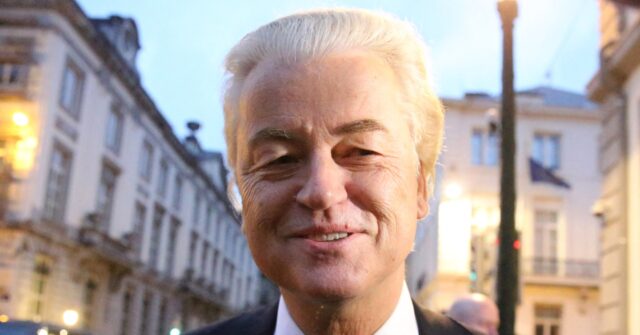Dutch populist leader Geert Wilders has hailed an agreement to crack down on mass migration and asylum in the Netherlands as “historic”.
Following months of negotiations, the coalition government in The Hague has reached a deal to pass an Asylum Emergency Measures Act, which will introduce a range of new restrictions on mass migration. This will fulfil a key campaign promise from Party for Freedom (PVV) leader Geert Wilders, who swept to a major victory last year and serves as the main power broker behind the government.
The legislation will empower the country from next month to begin deporting Syrian migrants, including those with temporary residence permits, back to areas of their homeland deemed safe by the Dutch government. Syrians from those designated safe areas of the country will be prohibited from applying for refugee status in The Netherlands, De Telegraaf reported.
Under the bill, municipal governments will no longer be required to provide housing to accommodate refugees. Additionally, the government will begin enacting stricter border control measures by the end of November.
The deal will also reduce the validity of an asylum permit from five to three years and limit the number of UN resettlement migrants to 200, down from the current 500.
Although some emergency measures were dropped from the bill, they are still likely to be introduced in separate legislation.
Wilders said over the weekend that he was “very happy” with the deal, saying: “Sometimes you have to give up a little to get a lot more in return. That’s politics. I can do that. And great that it worked!”
The populist leader described the agreement to clamp down on mass migration as “historic”.
“I went to great lengths to make this happen. I will keep my promise to you. The strictest asylum policy ever,” Wilders wrote on X.
“Actions speak louder than words. Dutch people back in first place!” he added.
However, it was not all smiles in The Netherlands, with leftist lawmakers decrying the impending legislation.
Leader of the Party for the Animals (PvdD), Esther Ouwehand, lamented that the bill as “a law on the backs of people fleeing war and violence is hailed as the salvation of democracy.”
In addition to the measures set to be implemented under the asylum agreement, the Wilders-led government is also seeking to introduce “strict conditions” on migrant family reunification schemes, also known as “chain migration”.
Under the proposed plans, migrants who have been legal residents for two years, have their own permanent private address, and who meet income thresholds would only be able to bring in members of their direct nuclear family.
Meanwhile, last month, the Netherlands also wrote to the European Commission demanding an “opt-out” clause from Brussels’s migration policies to reduce the strain on “public housing, healthcare and education” caused by the mass influx of foreigners.


